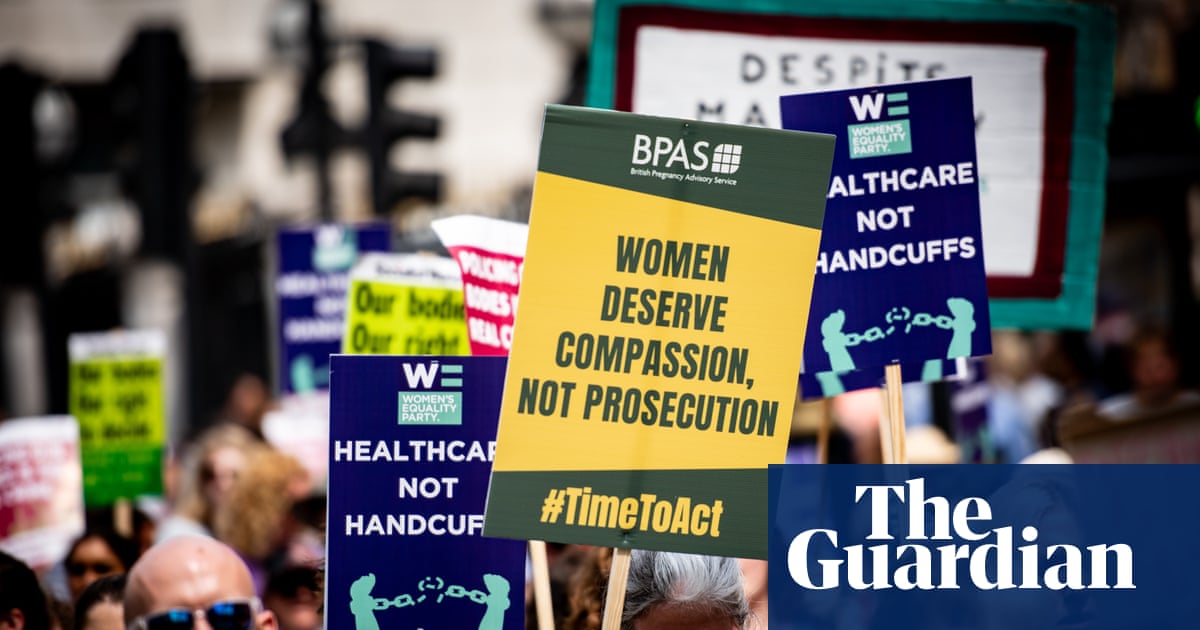
Doctors and other healthcare staff should not report suspected illegal abortions to the police as prosecutions are never in the public interest, the Royal College of Obstetricians and Gynaecologists has said.
In an intervention on Monday that will trigger further debate on the decriminalisation of abortion, Dr Ranee Thakar, the president of the professional body, said “outdated and antiquated” abortion laws meant women were left vulnerable to criminal investigation.
Health professionals were subject to “unacceptable and unwarranted scrutiny”, Thakar said. If health staff disclose confidential patient information without consent, they could face proceedings by professional bodies, the RCOG said.
The Society for the Protection of Unborn Children said urging health workers not to report abortions could undermine public trust in the health service and the judicial system.
The RCOG’s new guidance to health staff comes amid concern over an increase in the number of investigations and prosecutions of women who have sought or had abortions.
Since 2022, at least six women have been taken to court and dozens have been investigated for allegedly ending their pregnancies outside the legal requirements covering abortion. In the previous 20 years, just three women were prosecuted.
Recent prosecutions include that of Carla Foster, who was jailed for procuring her own abortion, when the foetus was 32 to 34 weeks’ gestation, in 2020. She was later released on appeal amid a public outcry.
Bethany Cox from Teesside was cleared of the same charge earlier this month. Three more women accused of illegal abortions are due to appear in court this year.
The RCOG’s guidance, announced on Monday and drawn up with the Faculty of Sexual and Reproductive Healthcare, the British Society of Abortion Care Providers and the Faculty of Public Health, will say there is no legal obligation to report women who have abortions to police or external agencies, and it is not in the public interest to do so.
Medical staff should not divulge information without consent unless they are concerned for the woman’s safety or the safety of others, and they must be able to justify any disclosure, the guidance will say. Blood tests or other samples should not be provided to the police or other agencies without consent or a court order.
By law, health staff cannot disclose patients’ data unless consent is given. Healthcare workers can breach confidentiality rules to give information to the police about possible crimes only if it is deemed to be in the public interest.
A statement published on the RCOG website said: “Unless a statute requires it (for example with female genital mutilation), a healthcare [worker] must abide by their professional responsibility to justify any disclosure of confidential patient information or face potential fitness-to-practice proceedings. Where healthcare professionals do involve the police it should be in the patient’s best interests or needed to protect others – for example, where there is a risk of death or serious harm.”
Abortions in England must be approved by two doctors and take place within the first 24 weeks of pregnancy. Otherwise, it is illegal to deliberately end a pregnancy and, under the 1861 Offences Against the Person Act, it carries a maximum punishment of life imprisonment. Terminations after 10 weeks are carried out in a hospital or clinic.
The RCOG said it was concerned at the increase in prosecutions involving “deeply traumatised” and vulnerable women. Thakar said: “We firmly believe it is never in the public interest to investigate and prosecute women who have sought to end their own pregnancy. These women should be treated with care and compassion, without judgment or fear of imprisonment.
“Outdated, antiquated abortion laws mean women who have experienced unexplained pregnancy loss are also vulnerable to criminal investigation, and health professionals are placed under unacceptable and unwarranted scrutiny.
“We hope this new best practice guidance gives healthcare professionals clarity around their legal and professional obligations. It is vital that they understand what is expected of them and the potential consequences of breaching patient confidentiality.
“It is just one of the ways we are working towards removing abortion care from criminal law and placing it instead under medical regulation.”
Dr Jonathan Lord, who co-chairs the RCOG abortion taskforce, told the BBC: “We have witnessed life-changing harm to women and their wider families as a direct result of NHS staff reporting women suspected of crimes, and we just don’t think that would happen in other areas of healthcare. We deal with the most vulnerable groups who may be concerned about turning to regulated healthcare at all, and we need them to trust us.”
Lord said the college’s main concern was the sharp rise in women being investigated. “Although the numbers are hard to tease out, at the very tip of the iceberg are those who end up in court … And for everyone who ends up in court, there’s a much greater number who are investigated, and it’s those investigations that really caused the harm to women and their families.
“It’s also just so deeply traumatic if you suffered a pregnancy loss or a natural miscarriage, whether it was from abortion care or whether it was just a natural thing, to then face suspicion and investigation, and know that your name could be very public and you could go to jail, is just deeply distressing.”
According to the Crown Prosecution Service, such cases are rare and addressed sensitively.
A government spokesperson said: “It is important that all women have access to safe and legal abortions on the NHS, which now includes taking abortion pills at home. We understand this is an extremely sensitive issue and we recognise the strongly held views on all sides of the discussion. That is why, by longstanding convention, any change to the law in this area would be a matter of conscience for individual MPs rather than the government.”












